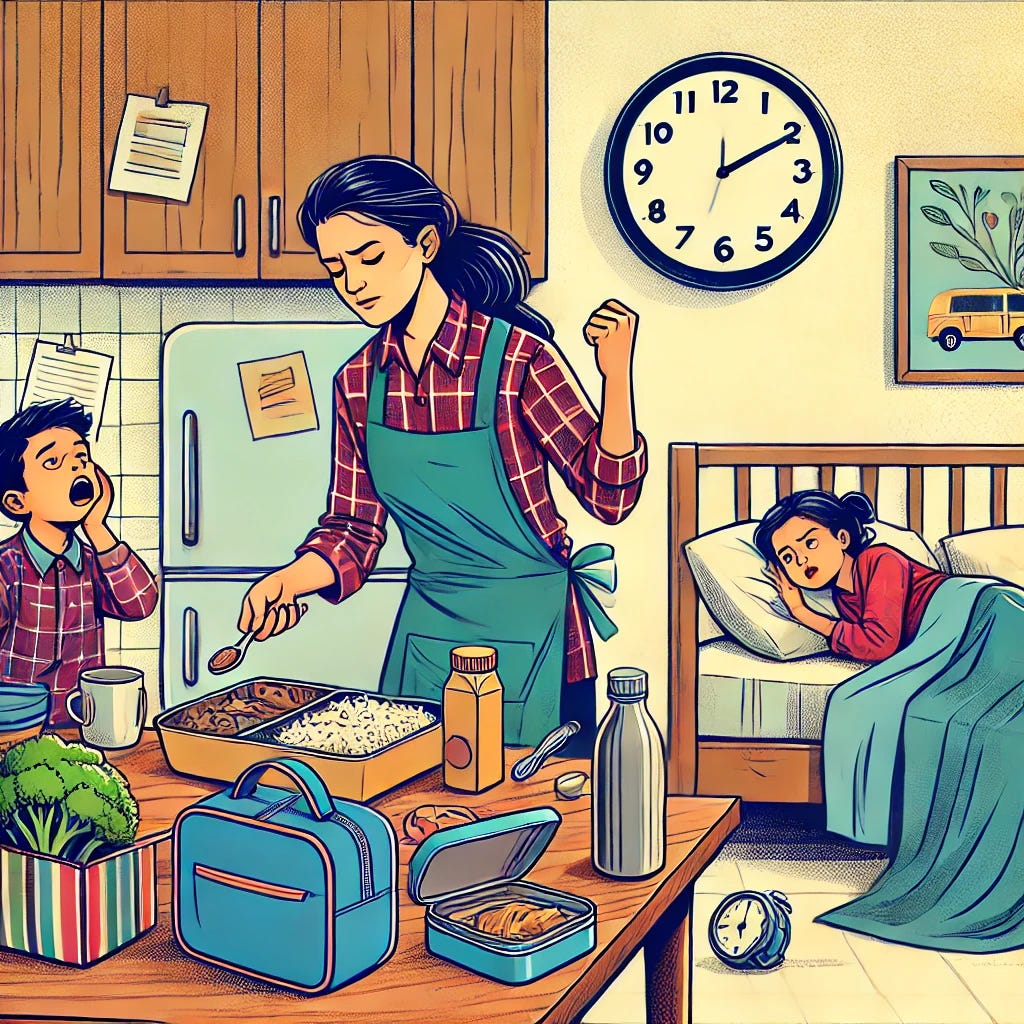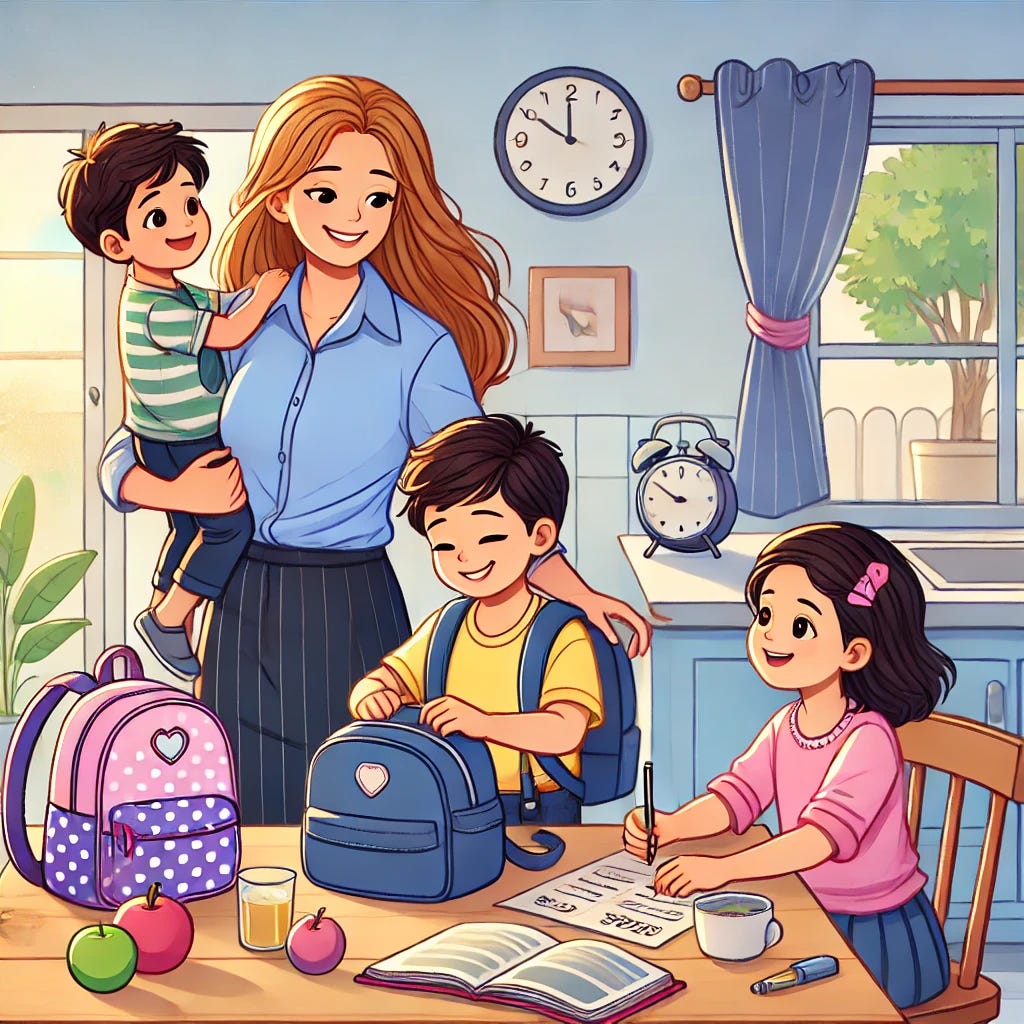The Power of Routines in Child Development
Just as nature thrives on routines and every cell in your body follows natural laws, our children too need structure and routines to flourish
Let’s look into the life of Prerna, a working mother who manages her job from home. She has two young kids: Diva, 4 years old, and Advait, 7 years old.
Here’s how a typical evening ends for them: they watch TV late into the night, which makes it hard for Prerna to wake them up the next morning.
Morning arrives, and Prerna finds herself juggling between the kitchen and the bedroom—preparing breakfast, packing lunches, and trying to wake up her children. The weather outside is pleasant, and the kids are still lost in their sweet dreams. Time is running out as the school van will arrive in just 30 minutes.
With so many tasks pending—getting the kids to eat breakfast, packing their bottles, and ensuring their school bags are complete—it’s all on Prerna.
As time ticks away, Prerna becomes frustrated. She rushes to her kids, urging them to get ready quickly. Advait manages to pull himself together, but Diva is still sleepy. In her frustration, Prerna yells, “Hurry up or you’ll miss the van!” Diva, still groggy and upset, resists. The tension escalates as Diva begins to cry.
In a hurried 15-minute scramble, Prerna manages to calm Diva down and get both kids ready, leaving her breathless and drained.
Once the kids leave, Prerna finally sits down for her breakfast and quickly finishes lunch prep, knowing she'll have to juggle more tasks while working on her laptop.
And then, the same evening routine repeats, leading to another stressful morning full of rushing, shouting, and emotional meltdowns.
But what are the kids learning in this process? They’ve grown accustomed to Prerna doing everything for them—waking them up, getting them dressed, packing their tiffins, and making them eat breakfast. Meanwhile, Prerna’s energy is drained, and the children learn to rely on her for tasks they should be doing themselves.
Now imagine a different approach. What if Prerna helped her children establish a routine? If Diva and Advait had clear, simple tasks, they would begin taking responsibility for themselves—helping with their chores and even getting involved in food preparation.
This would not only teach them responsibility but also help build a healthy relationship with food. Diva and Advait would be less likely to throw tantrums during meals or bring home unfinished lunchboxes.
At first, it may seem clumsy and time-consuming to teach kids to follow a routine. But, like any good habit, the effort pays off in the long run. Over time, Prerna’s mornings could become less stressful, and her children would grow up more responsible, independent, and ready to help themselves.
This simple step benefits everyone: it creates a joyful family atmosphere, strengthens the mother-child bond, and teaches children cooperation, responsibility, and effective time management.




Very powerful